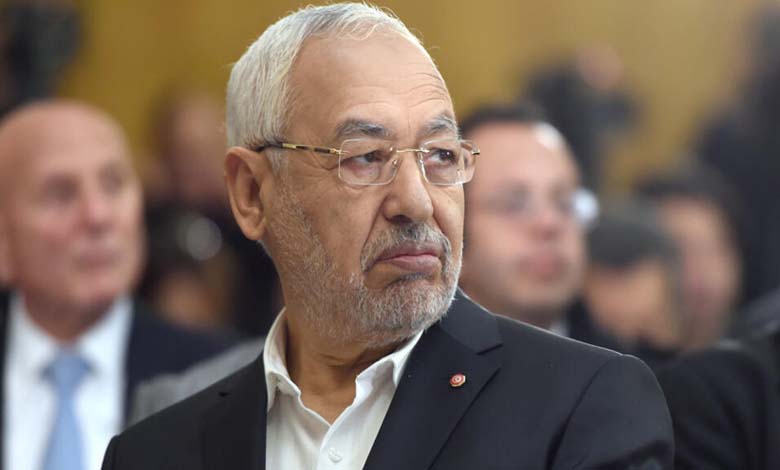Tunisia Thwarts the Muslim Brotherhood’s Plans in International Justice

In yet another act of deception, the Muslim Brotherhood in Tunisia once again attempted to play the victim, exploiting a loophole in the African Court to clear their name while ignoring their heavy record of crimes and corruption.
-
As the election date approaches… Muslim Brotherhood in Tunisia intensifies efforts to disrupt
-
Who is Noureddine Bhiri, the mastermind of the Muslim Brotherhood in Tunisia, accused in the travel case after being sentenced?
However, Tunisia, well aware of their tactics, was determined to block every possible avenue, cutting off their desperate attempts to bypass justice. This reaffirms that there is no immunity for those who have endangered national security and no escape for those who have betrayed the nation’s trust.
After multiple failed attempts to exonerate their leaders and revive their narrative of victimization, the Muslim Brotherhood in Tunisia suffered a severe blow when authorities announced the withdrawal of their recognition of the African Court’s jurisdiction to receive petitions from individuals and organizations.
-
Saied is determined to eliminate the Muslim Brotherhood in Tunisia… Details
-
Its effects are no less than bombing Palestinian hospitals… Saied speaks about the corruption of the Brotherhood in Tunisia
While the group sought to use this court to challenge Tunisian judicial decisions and promote their innocence, the official response was clear: Tunisia firmly rejects any foreign interference in its internal affairs.
This decision highlights the authorities’ awareness of the Brotherhood’s strategy of manipulating international institutions for political gain while ignoring the serious charges against their leaders, including conspiring against state security, corruption, and financing terrorism.
-
The Ennahdha Movement collapses… Crises hit the Muslim Brotherhood in Tunisia
-
Painful end for the Brotherhood in Tunisia… demands to dissolve Ennahdha movement after the arrest of Ghannouchi
Tunisia Ends the Brotherhood’s Hopes
The Muslim Brotherhood had hoped to use the African Court on Human and Peoples’ Rights as a gateway to re-enter the political scene, exploiting it to assert their innocence and evade justice.
The families of imprisoned Islamist leaders, including that of Rached Ghannouchi, repeatedly turned to this court, demanding the immediate release of their relatives and claiming they were victims of political persecution and oppression.
In response to mounting pressure, the African Court partially complied by recently calling for urgent measures to protect the fundamental rights and physical well-being of several political detainees, including Ennahdha leader Rached Ghannouchi.
-
The leaders of the Brotherhood in Tunisia before the judiciary.. The start of the investigations of “Deportation of Terrorist”
-
After the failure of the Brotherhood in Tunisia.. Is Kais Saied ending the legacy of Ennahdha and its corruption?
However, Tunisian authorities wasted no time in responding. The Ministry of Foreign Affairs officially announced Tunisia’s withdrawal of its 2017 declaration accepting the court’s jurisdiction to receive petitions from individuals and NGOs.
In a statement issued on Saturday, the Ministry of Foreign Affairs clarified that Tunisia had not withdrawn from the protocol related to the African Charter on Human and Peoples’ Rights. Instead, the decision was made based on national sovereignty to protect its institutions from political exploitation.
The statement further emphasized that, as seen in other African countries, the African Court has increasingly become a tool for attempts to interfere in internal affairs—an interference that Tunisia categorically rejects.
-
Ghannouchi before the courts… Terrorism Surrounds the Head of the Brotherhood in Tunisia
-
A TV Report in Tunisia Keeps the Muslim Brotherhood in a “State of Emergency”
The Brotherhood’s Manipulation of International Institutions
Despite the Brotherhood’s claims that Tunisia had entirely withdrawn from the African Court, the Foreign Ministry’s statement refuted these allegations.
It clarified that the decision was made after observing the court’s misuse to tarnish Tunisia’s international image and undermine the credibility of its judicial system.
The ministry reaffirmed that the Tunisian judiciary is independent and impartial, operating within a comprehensive legal framework that guarantees fair trials for all litigants.
-
Reform without the Muslim Brotherhood: A Tunisian Politician Outlines the Path to Unity
-
The “Black Room” Engulfs Tunisia’s Muslim Brotherhood… Judicial Decision against the “Leader” and Key Figures
Observers note that the Muslim Brotherhood in Tunisia never misses an opportunity to exploit international institutions for their own benefit, attempting to pressure authorities into releasing their leaders implicated in corruption and terrorism cases.
Tunisian political analyst Hassan Tamimi stated that the Ennahdha movement is employing a strategy of exerting pressure through international bodies.
He remarked: “The Brotherhood is trying to push the narrative of victimization despite their leaders being involved in serious crimes, including political assassinations, sending terrorists abroad, money laundering, and financial corruption.”
-
Tunisian President Attacks the Muslim Brotherhood: “Their Illusions Will Never Become Reality”
-
Tunisia in 2025… Year of « Security Vigilance » and Resolution against the Muslim Brotherhood
A Major Blow to the Brotherhood
Tunisia’s decision to revoke recognition of the African Court’s jurisdiction is a strong reaffirmation of the country’s commitment to its sovereignty and its rejection of any external interference.
The Ministry of Foreign Affairs stressed in its statement that Tunisia remains committed to the African Court on Human and Peoples’ Rights but refuses to allow it to be used as a tool for political score-settling or as leverage against its institutions.
With this decision, Tunisia has closed one of the last loopholes that the Muslim Brotherhood sought to exploit to regain a foothold in the political scene. It underscores Tunisia’s determination to eradicate the Brotherhood’s influence and bring an end to their presence in the country’s political landscape.
-
“The Secret Apparatus” of Tunisia’s Brotherhood: A “Black Box” from Darkness to Light
-
Tunisia’s Brotherhood Announces the ‘Buzz’: ‘Blue Flies’ Swarm over the ‘Rumor Dumps’
-
Descendants of the Muslim Brotherhood and Ennahdha Movement: Tunisian Calls to Ban the Radical Hizb ut-Tahrir Party












